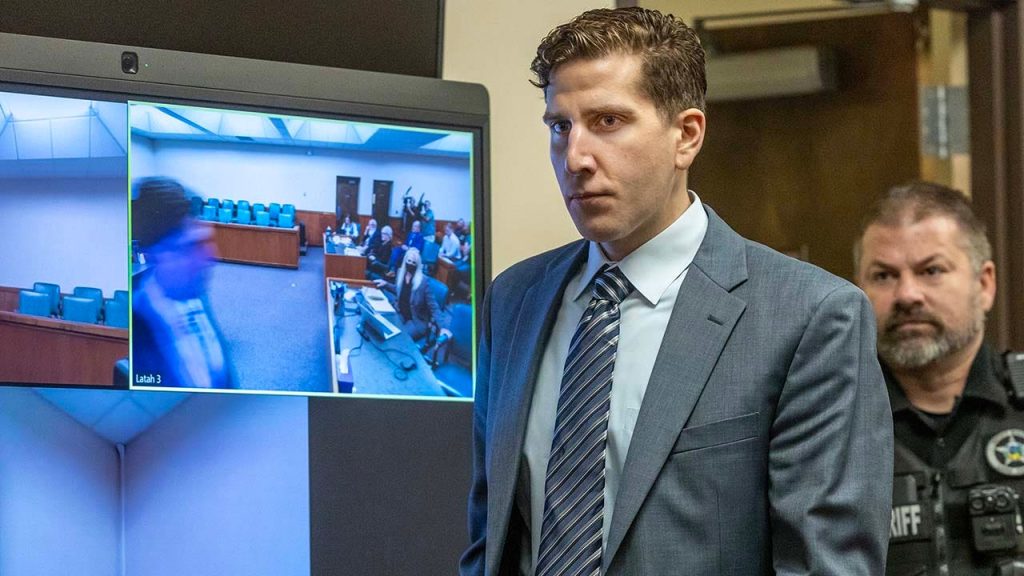Bryan Kohberger, the man accused of killing four University of Idaho undergrads in a home invasion stabbing, has offered an alibi through his attorneys. He claims he was out driving in the early morning hours of November 13, 2022, in the area south of Pullman, Washington, west of Moscow, Idaho. Kohberger, a former criminology Ph.D. student at Washington State University, is charged with four counts of murder and burglary after allegedly stabbing four young adults with a KA-BAR knife. He was arrested in late December 2022, but it is unclear if he has evidence to support his alibi, such as photographs or outdoor gear found in his apartment.
Kohberger is said to have frequently driven at night during the school year, with his phone data showing him in the countryside in the late night hours on multiple occasions. The court documents filed by his defense lawyers state that the phone data includes numerous photographs taken on several different late evenings and early mornings, including in November, depicting the night sky. They also plan to offer an expert to prove that Kohberger’s cell phone was in the specific area on the night of the killings. However, his DNA was found at the crime scene, complicating the alibi defense.
Despite Kohberger’s alibi, prosecutors are seeking the death penalty for the murders. The defense’s strategy appears to be to create reasonable doubt in the minds of the jurors, which could result in a not guilty verdict. While DNA evidence is typically strong and reliable, the defense is attempting to challenge this evidence using the alibi and phone data. Kohberger has not yet had a trial date set, so further details and evidence will likely be presented in the courtroom as the case progresses.
In attempting to challenge the DNA evidence and provide an alibi for the night of the killings, Bryan Kohberger’s defense team is working to create reasonable doubt in the case. By offering up an alibi that claims he was out driving and engaging in outdoor activities in a specific area, they are trying to present an alternative explanation for his whereabouts that night. The defense’s strategy includes presenting phone data and photographs to support the alibi, as well as expert testimony to prove his location. However, the presence of Kohberger’s DNA at the crime scene remains a significant challenge for the defense.
Given the seriousness of the charges and the potential consequences, the case against Bryan Kohberger is likely to be closely followed by the public and legal experts. The defense team’s efforts to challenge the DNA evidence and provide an alibi will be a key aspect of the trial proceedings, as they seek to create reasonable doubt in the minds of the jurors. Ultimately, the decision on Kohberger’s guilt or innocence will rest on the evidence presented in court and how effectively it is interpreted and argued by both the prosecution and defense. Only time will tell how this complex and high-profile case will ultimately be resolved.


